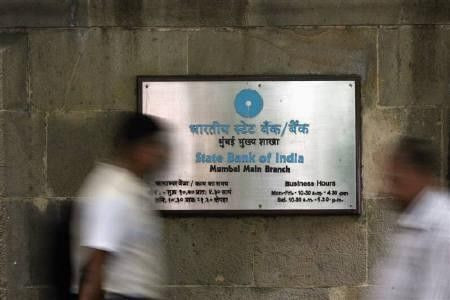SBI Q3 Beats Forecast, but Bad Loans Rise

The State Bank of India (SBI), the country's biggest lender, reported an unexpected rise in bad loans for the third quarter, taking the shine off healthy growth in loan demand and interest income that helped it post a 15 percent rise in net profit.
The rise in net non-performing assets of the state-run bank, which is the lead lender to a number of troubled companies including Air India and Kingfisher Airlines (KING.NS), dampened investor hopes that its asset quality had stabilised.
They have disappointed in terms of asset quality, but that can be put down to Kingfisher, said Manish Agarwalla, banking analyst at MF Global Sify Securities in Mumbai.
Shares in the bank, which the market values at about $28 billion, closed down nearly 2 percent in a firmer overall market on Monday after it said its non-performing assets rose to 2.22 percent of the total from 1.61 percent a year earlier.
SBI reported a net profit of 32.6 billion rupees for the three months to December 31, up from 28.3 billion rupees a year earlier. Net interest income rose 26.7 percent from a year earlier to 114.7 billion rupees.
Analysts, on average, had expected a 10 percent rise in net profit to 31.2 billion rupees, according to Thomson Reuters I/B/E/S. The numbers are for SBI's core banking operations and exclude businesses such as insurance and investment banking.
The only negative aspect is the non-performing assets, said Krishnan ASV, banking analyst at Ambit Capital in Mumbai.
SBI set aside 30.1 billion rupees for bad loans in the quarter, nearly 85 percent more than in the December quarter of 2010. In the preceding quarter, it increased provisions for non-performing loans by 35 percent from a year earlier.
LENDING RISES
SBI, which was downgraded by Moody's Investors Service in October because of its thin capital base and worsening asset quality, said gross lending rose 17.5 percent from a year earlier to 8.7 trillion rupees at the end of December.
That was faster than the annual loan growth of 16.9 percent in the three months to September.
The central bank has said it expects credit to grow by 16 percent this fiscal year ending March 31, down from 20 percent a year earlier.
SBI said its net interest margin, a key gauge of profitability, rose to 4.05 percent in the nine months to December 31 from 3.61 percent in the same period a year earlier.
The bank expects an improvement of 5-10 basis points in the margin in the current quarter compared with the October-December quarter's 3.82 percent, Chairman Pratip Chaudhuri told reporters.
Net interest margin are forecast to improve to 3.8 percent for the fiscal year from an earlier projection of 3.65 to 3.75 percent, he said.
Chaudhuri has previously said that said SBI, which already holds about a quarter of India's loans and deposits, plans to increase its market share for loans by 1 percentage point a year.
PRESSURE ON MARGINS
SBI is counting on a government capital infusion of $1.6 billion in the current fiscal year, but has said it needs double that amount to maintain its capital adequacy ratio as it grows.
SBI's large private rivals, including ICICI Bank (ICBK.NS), HDFC Bank (HDBK.NS) and Axis Bank (AXBK.NS), have also reported better-than-expected quarterly earnings, allaying some concerns about the asset quality of India's banks.
Although some smaller state-run banks disappointed investors, larger Punjab National Bank (PNBK.NS) and Bank of Baroda (BOB.NS) also did better than most analysts had expected.
Concern about rising bad loans in Asia's third-largest economy prompted Moody's to cut its outlook for the Indian banking sector to negative from stable in November.
High deposit rates and slowing loan growth are putting pressure on bank margins after the Reserve Bank of India raised interest rates 13 times between March 2010 and last October.
SBI shares, which fell 42 percent in 2011, closed 1.96 percent lower at 2,129.25 rupees, after being down about 3.5 percent just before the results were released.
© Copyright Thomson Reuters {{Year}}. All rights reserved.





















